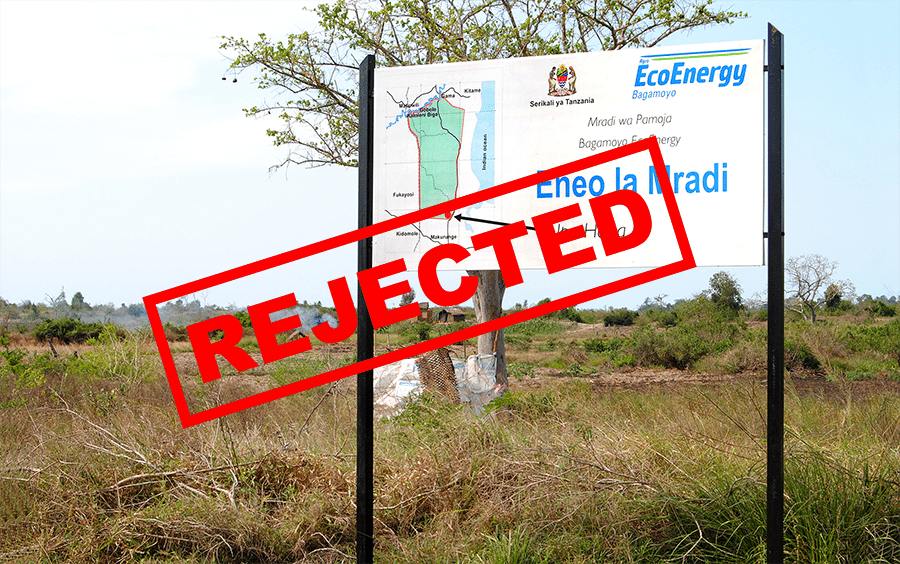Late last month, news media in Tanzania reported that a sugar and biofuels project in Bagamoyo, Tanzania, had been “shelved” by the Tanzanian government. The project is part of a large-scale agriculture initiative championed by the Obama administration and threatened to displace 1,300 farmers.
There also appears to be a major scaling back of the Big Results Now plans backed by the New Alliance, which announced that the Bagamoyo site and 15 others would be developed for the global sugar and biofuels markets. In response to questions from parliament, the Tanzanian Prime Minister stated that the development of sugar projects would go forward in at least four regions in Tanzania.
Hopefully this is a sign that the recently elected government in Tanzania has a new commitment to a participatory planning processes with communities. Community-based decision-making can assess what types of development projects will help local communities maintain control over and benefit sustainably from their natural resources, while increasing the supply of nutritious food locally and regionally. Any plans to develop sites for sugar should be carefully assessed for how local communities will retain control over land and water, and how the environment will be protected.
Even though the project has been shelved, the legal status of the land that was targeted by the biofuels company in Bagamoyo is still not clear. While some of the land included in the former project has been recognized as belonging to local villages, the part known as Razaba remains in question. The land was taken from local people to create a government-owned ranch from 1976-1993.
In the 23 years since the government abandoned the land, it has been reclaimed by local communities and pastoralist groups for farming and grazing. These communities remain on the land and should be recognized as legitimate tenure rights holders, under the 2012 UN Tenure Guidelines for Land, Fisheries and Forests. There are many pastoralists and people with farming skills in Tanzania who are in need of land rights, who should be prioritized ahead of outside investors.
When I was in Bagamoyo, I visited a longstanding smallholder rice project that had been originally established with Japanese assistance, and which was being strengthened with new public investment in the irrigation system. The government has the opportunity to work with local communities to determine the best way to develop the disputed land in Bagamoyo to meet local needs and build a strong system of smallholder food production. We look forward to working with them as they do this.



